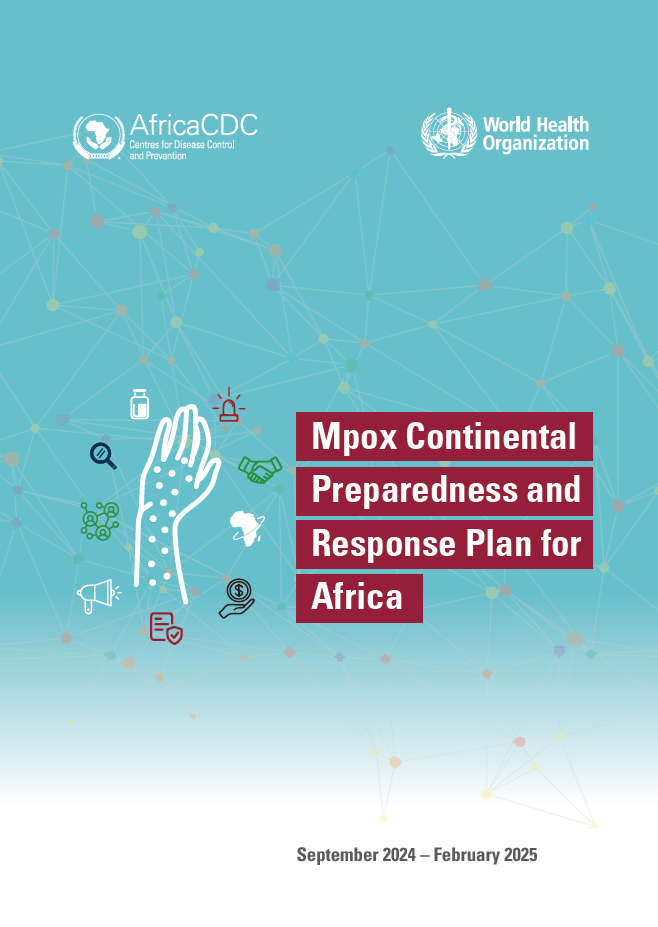Executive Summary
On August 13, 2024, the Africa CDC declared the mpox outbreak a Public Health Emergency of Continental Security (PHECS). The following day, the WHO declared it a Public Health Emergency of International Concern (PHEIC). A coordinated, continent-wide response is essential, co-led by the African Union (AU) through the Africa CDC and the World Health Organization (WHO), in close collaboration with global partners working under a unified plan, budget, and monitoring framework.
Over the past three years, mpox cases in Africa have surged due to increased human-to-human transmission and insufficient response capacities. Key challenges include weak surveillance, limited laboratory capabilities, poor infection prevention practices, low public awareness, inadequate community involvement, and a shortage of vaccines and treatments. Fragile healthcare systems and inadequate funding exacerbate these issues.
To respond to this outbreak, a coordinated, continentwide response is essential. It was agreed that the response will be co-led by Africa CDC and WHO, in close collaboration with global partners working under a unified incident management team, plan, budget, and monitoring framework.
This preparedness and response plan outlines essential priorities to contain the mpox outbreak around ten pillars emphasizing improved (1) coordination and leadership, (2) risk communication and community, (3) surveillance, (4) laboratory, (5) case management, (6), infection prevention and control, (7) vaccination, (8) research and innovation, (9) operations support and logistics, (10) continuity of essential services. Interventions are tailored for highly impacted and at-risk countries, considering cross-border transmission.
Member states are categorized into four risk-based groups to better direct preparedness and response efforts and resource allocation more effectively: countries with sustained transmission, those with sporadic cases or endemic reservoirs, at-risk countries near higher-risk areas, and other countries maintaining routine preparedness. This approach ensures targeted planning and optimal use of resources.
Excluding the cost of vaccines which depends on the negotiation with manufacturers and donated in-kind, the estimated budget for the six months from September 2024 to February 2025 is US$ 599,153,498.00. Of this, 55% (US$329,311,463.00) is allocated for mpox response in 13 affected member states and readiness in 15 others, while 45% (US$269,842,035.00) is earmarked for operational and technical support through partners.
This funding is vital for addressing immediate response needs, closing capability gaps, and ensuring the sustained management of mpox throughout the continent.
